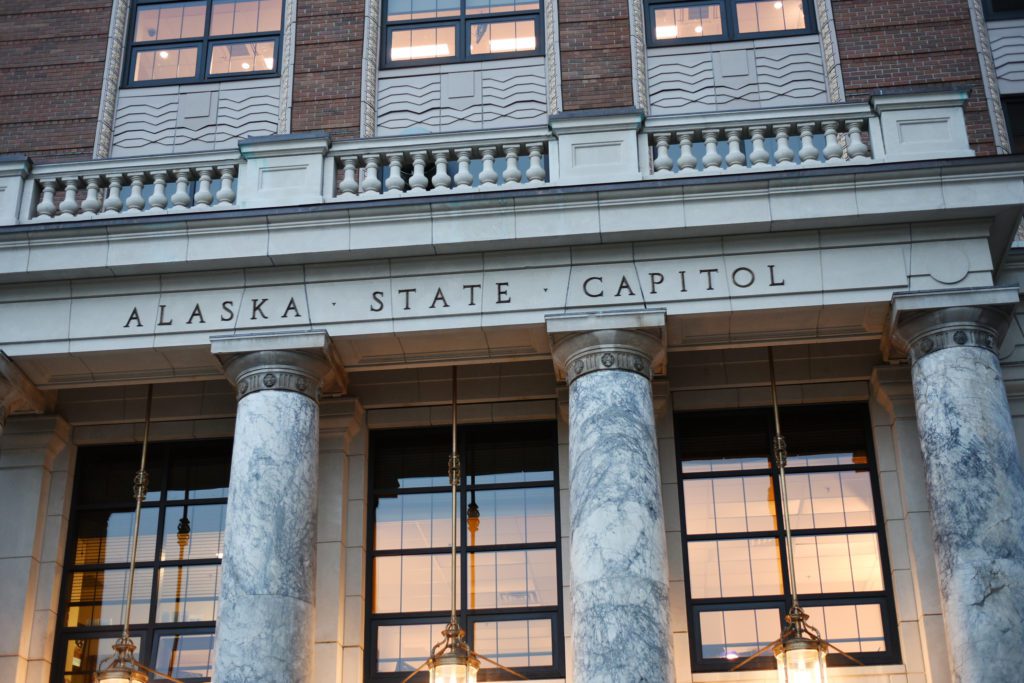
Greetings from the Capitol. A lot is happening in Juneau as legislators continue working on the budget and other matters that need to be completed before we can return to our districts for the interim. Likely, we will need to extend the session to finalize the budget, driven in large part by debate on how Alaska will utilize $1 billion in federal funds from the American Rescue Plan.
It is too early to say what the budget will look like when it passes the Legislature, but we are committed to getting the work done as quickly as possible. As chair of the Senate Rules Committee and a member of Senate Majority Leadership, I will be at the table to ensure that Senate District P is well-represented in budget negotiations.
Update on personal legislation
SB 20 passed the Senate unanimously on Monday, May 3 and is expected to be heard soon by the House Education Committee. Passage of SB 20 would allow Alaska teacher certification reciprocity to relocating educators. This would only happen if the teacher’s certification were in good standing in their former state.
I believe the bill will give Alaska’s school districts an additional means of addressing teaching shortages. It will also allow incoming teachers an opportunity to receive Alaska-specific education training after being hired rather than beforehand.
SB 19 has advanced to the House Rules Committee, its final stop before a floor vote. The bill extends the sunset date for the Special Education Service Agency until June 2029. SESA is governed by the Governor’s Council on Disabilities and Special Education. The council assists school districts in serving children with outreach services, special education instructional support and training.
SB 36 is awaiting a hearing in the House Education Committee. The bill will require that no later than the 30th legislative day of the first regular session, the University of Alaska Board of Regents to deliver a report to the Legislature that evaluates the quality and effectiveness of its instructional programs and to describe efforts to achieve or maintain accreditation. For each instructional program that has lost or is at risk of losing accreditation, the report must describe the university’s plan to address the loss or risk.
You may recall, in 2019 University of Alaska Anchorage’s School of Education lost its accreditation. Establishing a reporting requirement about UA system-wide accreditation is an effort toward improving communication and awareness, with the intent being to help avoid seeing such an unexpected accreditation loss from happening again.
SB 32 advanced from the House Education Committee on Wednesday, May 5. This bill will expand public high school students’ access to college coursework by providing a way for school districts to partner with the University of Alaska to earn dual high school and college credit.
Often called “middle colleges,” these dual-credit programs have been successfully operated for many years. In Alaska, several school districts are also now participating or developing middle college programs of their own, in collaboration with the University of Alaska. SB 32 will provide a framework to increase middle college opportunities for students throughout Alaska. The bill does require enrollment in an Alaska public school for participation, with availability to students who have completed the eighth grade. SB 32 requires an annual report to the legislature on student participation, course offerings and the total number of earned credits.
SB 32 has been referred to the House State Affairs Committee for consideration.
Please contact my office for more information on these bills, or any other legislation I am sponsoring this year.
You can also access information on any bills and resolutions introduced during the 32nd Alaska Legislature through the Bill Action and Status Inquiry System (BASIS) on the Internet at this address: cdv.tiny.us/bills.
Legislative Information Offices
A good way to keep track of where bills are in the process is through the Legislative Information Office near you.
The Cordova LIO can be reached at (907) 424-5461.
The Kodiak LIO can be reached at (907) 486-8116.
The Homer LIO can be reached at (907) 235-7878.
The Kenai LIO can be reached at (907) 283-2030.
Help with the federal government
The members of Alaska’s Congressional Delegation have in-state offices to help you with matters involving the federal government and its many agencies.
You can reach Congressman Don Young’s Anchorage office at 907-271-5978 or toll free at 866-990-5979.
Senator Lisa Murkowski’s Anchorage office can be reached at 907-271-3735 or toll free at 877-829-6030.
Contact Senator Dan Sullivan’s office in Anchorage can be reached at 907-271-5915.
Help with state agencies
My office is available throughout the year to assist you with issues involving state agencies.
Call me tollfree at 1-800-821-4925
Contact me in the Capitol at 907-465-4925.
Call us in Kodiak at 907-486-4925.
You can reach us in Homer at 907-235-0690.
Of call us toll free at 1-800-821-4925.
E-mail me at Sen.Gary.Stevens@akleg.gov
Please note that we are unable to assist you with legal matters. If you have a case involving a lawsuit or pending litigation and need help finding an attorney, I recommend contacting the Alaska Bar Association at www.alaskabar.org.)
Thanks to District P’s media for allow me to share this information with you. I look forward to updating you more on the Legislature’s work in the next Capitol Report.





